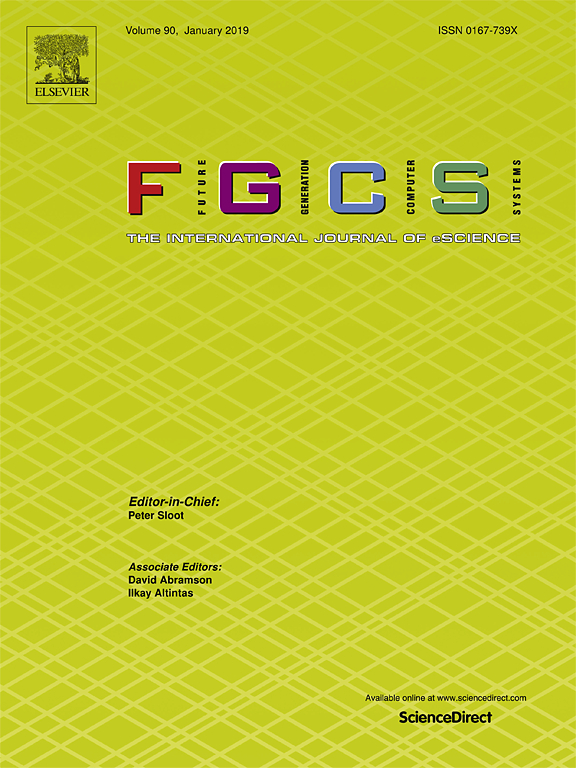Editorial Board
A multi-model architecture based on Long Short-Term Memory neural networks for multi-step sea level forecasting
Stable federated fog formation: An evolutionary game theoretical approach
DR-BFT: A consensus algorithm for blockchain-based multi-layer data integrity framework in dynamic edge computing system
Computer-aided intelligent design using deep multi-objective cooperative optimization algorithm
A blockchain-based trust system for decentralised applications: When trustless needs trust
Achieving cybersecurity in blockchain-based systems: A survey
DDFPN: Context enhanced network for object detection
Advanced optimization technique for scheduling IoT tasks in cloud-fog computing environments
Blockchain-based decentralized reputation system in E-commerce environment
Dynamic positioning model of offshore oil drilling platform based on OIPSO algorithm
An efficient approach to robust controller placement for link failures in Software-Defined Networks
Multi-feature fusion tracking algorithm based on generative compression network
Triggerflow: Trigger-based orchestration of serverless workflows
Adaptive frequency scaling strategy to improve energy efficiency in a tick-less Operating System for resource-constrained embedded devices
Asymmetric cryptographic functions based on generative adversarial neural networks for Internet of Things
A dynamic and scalable parallel Network Intrusion Detection System using intelligent rule ordering and Network Function Virtualization
Benchmarking parallelism in FaaS platforms
Fair multi-owner search over encrypted data with forward and backward privacy in cloud-assisted Internet of Things
CoNet: Co-occurrence neural networks for recommendation
Comparing workflow application designs for high resolution satellite image analysis
A blockchain-based preserving and sharing system for medical data privacy
Mode superposition methods based on hysteretic damping assumption used in seismic calculation of hybrid structures
Integration of type-2 fuzzy logic and Dempster–Shafer Theory for accurate inference of IoT-based health-care system
Motion recognition technology of badminton players in sports video images
LogNADS: Network anomaly detection scheme based on log semantics representation
Efficient, robust and effective rank aggregation for massive biological datasets
ForestEyes Project: Conception, enhancements, and challenges
Research on strong agile response task scheduling optimization enhancement with optimal resource usage in green cloud computing
Research on calculation model of bottom of the well pressure based on machine learning
Artificial intelligence-enabled Internet of Things-based system for COVID-19 screening using aerial thermal imaging
Big data driven Internet of Things for credit evaluation and early warning in finance
Knowledge worker scheduling optimization model based on bacterial foraging algorithm
Editorial: Special issue on Advancing on Approximate Computing: Methodologies, Architectures and Algorithms
Collective location statistics release with local differential privacy
Heterogeneous computation in specific domain accelerations
Predictive classification of ICU readmission using weight decay random forest
An emotion and cognitive based analysis of mental health disorders from social media data
A suggested testbed to evaluate multicast network and threat prevention performance of Next Generation Firewalls
Economic model for evaluating the value creation through information sharing within the cybersecurity information sharing ecosystem
Detecting covert communities in multi-layer networks: A network embedding approach
Retraction notice to “Smart Health Monitoring and Management System: Toward autonomous wearable sensing for Internet of Things using Big Data Analytics” [Future Gener. Comput. Syst. 91 (2019) 611–619]
Retraction notice to ‘Erratum to “Smart Health Monitoring and Management System: Toward autonomous wearable sensing for Internet of Things using Big Data Analytics [Future Gener. Comput. Syst. 91 (2019) 611–619]”’ [Future Gener. Comput. Syst. 108 (2019) 1350–1359]


